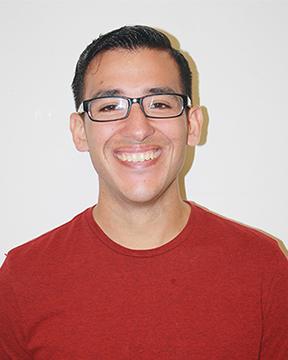Technology and connecting with students was the focus of the fifth annual State of Education that took place in the Burnight Center Theatre Tuesday, March 12.
The State of Education is meant for professors and other leaders at Cerritos College to look at the successes and shortcomings of the campus and how it can improve.
Students from the Dean’s List sat on stage as representatives from various departments presented seven different ideas to the audience focused on helping students and improving the college.
Presenters such as the Dean of Academic Success Rick Miranda went over one topic titled “Academic Infrastructure”.
“(Academic Infrastructure) is the environment in which teaching occurs across the campus. That’s the physical spaces, (and) the digital spaces.”
Miranda went over the new buildings constructed across the campus such as the Automotive Partners Building, the Physical Sciences and Technologies Building and future sites such as the Fine Arts Building.
He also went over the newly expanded Wi-Fi and how it is still trying to reach more places on campus.
Other presentations focused on trying to better help students on their educational path and improve teaching methods.
Dr. Renee DeLong Chomiak believed that the most important thing to take away from the conference was the success of students.
“It’s all about student success and how we can help student become more successful…we all have a role in helping students.
“I just want to make sure that we honor students and listen to what they need and provide the services and programs that they need.”
The event was hosted by Dean of Academic Success and Institutional Effectiveness Bryan Reece instructed attendees in the use of an online poll that was used to gain the audience’s insight in to each field.
Reece took two themes away from the conference.
“One the overarching message is we have to focus on students and the second is we have to constantly be making improvements.”
Reece also mentioned that he hopes faculty and staff take what they discussed and apply it every day and not just at meeting and conferences.
Attendees were able to use their phones to answer survey questions and at one point they were able to text a single word to emphasize what they believe was the most important topic.
As people texted, the words popped up on screen with the most used words getting bigger and coming into the foreground.
Most seemed to like the idea of allowing the audience to text take online surveys such as dance major Areal Hughes.
“I liked (the surveys), (they were) really effective. It felt like an effective way (to provide input) in case you just generally want to speak out and (for) those quiet students who don’t really raise their hands a lot. That’s a great way to get everybody involved.”
Someone who was not a fan of the phone surveys and talk of technology was philosophy major Andrew Boudreau.
“One thing I was really against was this emphasis on technology. Although technology is great it’s not everything.”
He was not happy with the surveys, “It (singled) out students who can’t afford cell phones. First they said smartphones, I don’t own a smartphone. I can’t use a smartphone. I don’t like smartphones.”
Some students came to the conference under the impression that they were going to be allowed to speak but none of the students were given time to address the crowd.
This made Boudreau angry since he came to the conference with a speech and was prepared to speak to the audience.
“By taking away student input in this whole presentation you may as well not have students on stage. Why invite us there? Why make us sit there? (It made) us look like (we’re) supporting what you’re saying while you’re representing it.”
Reece who helped coordinate the event explained that they wanted students to come to be involved in the surveys.
“What we told students is that we would like their input and the idea was I didn’t want to have a room filled with just faculty and managers when we were asking those questions. I wanted student’s voices to be in there.”









